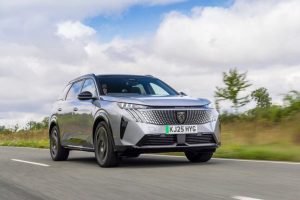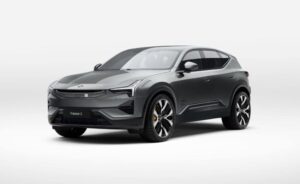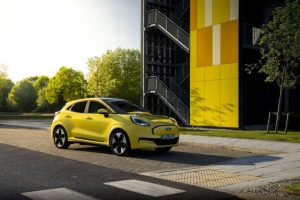Simpson & Partners has ranked the M180 in Lincolnshire as the UK’s worst motorway for EV charging access and range anxiety. The study analyzed 35 motorways across the country.
The Manchester orbital M60 topped the rankings as the best motorway for electric vehicle charging infrastructure.
The 25-mile M180 scored just 0.22 EV charging stations per junction. Only two charging stations are accessible within one mile of its nine junctions.
Bottom performers create charging challenges
The M40 between London and Birmingham came in second worst despite having 1.43 charging stations per junction across its 89-mile stretch. Its low junction density gives drivers fewer opportunities to exit and charge.
Yorkshire’s M18 ranked third worst with 0.92 charging stations per junction along its 26.5-mile route. Drivers can’t reliably access charging points at each exit.
North West dominates top rankings
The 36-mile M60 Manchester orbital claimed first place with 4.57 charging stations per junction. It benefits from high junction density at 1.03 junctions per mile.
Lancashire’s M65 took second place with the highest ratio of charging stations at 5.79 per junction across its 26-mile stretch.
Several major motorways performed poorly in the analysis. The M11 connecting London to Cambridge ranked seventh worst with 3.11 charging stations per junction.
The UK’s largest motorway – the 232-mile M6 – placed eighth worst despite having 218 chargers of varying speeds. Its massive length makes it difficult for drivers to plan charging stops.
The M1 rounded out the bottom 10 with 2.38 charging stations per junction across its 193-mile route between London and Leeds.
“The M180 has just two charging stations across nine junctions, creating significant anxiety for electric vehicle owners,” said David Simpson, Simpson & Partners co-founder.
Simpson noted that limited charging infrastructure on major motorways risks becoming a barrier to wider EV adoption.
He pointed out that modern EVs average around 200 miles of range in ideal conditions. For many drivers, charging before and after motorway journeys is sufficient.
“Modern EV charging stations can add significant range in just 20-30 minutes, but they’re only helpful if drivers can reach them,” Simpson explained.
Most motorways were designed decades before electric vehicles existed. Charging stations are now being added to service stations at most junctions to increase availability.
Range anxiety concerns decline
Recent data from charge point operator Jolt suggests charging concerns are diminishing. 86.3% of motorists who’ve switched from petrol or diesel cars to EVs are no longer worried about range anxiety or charger availability.
Zapmap found that over 80,000 public EV chargers now operate across the UK. The network added 8,670 charge points during the first six months of this year alone.
The infrastructure continues expanding as EV adoption accelerates and manufacturers extend vehicle range capabilities.





